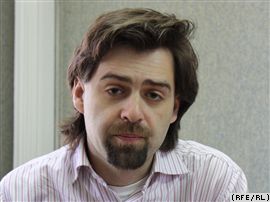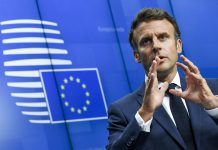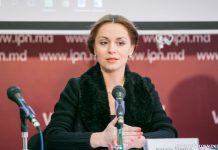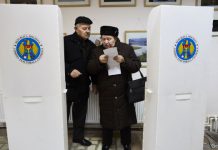Question: Is Russia very concerned about the closer relations of its six former Soviet neighbours with the EU as part of the Eastern Partnership?
Nicu Popescu: I think that Russia was more concerned several years ago, especially in 2008-09 when the EU launched the Eastern Partnership after the war in Georgia. At that time, Russia was really concerned. Since then, this concern has lessened dramatically because, on the one hand, it seems that the Eastern Partnership is not running as quickly and successfully as Brussels dreamed and Moscow feared. And on the other hand, today Russia has put this issue on the back burner and, in this sense, its concern has abated.
Question: Russia and the European Union are competing for the markets of the member countries of the Eastern Partnership, inviting them to join their free trade zones. Which of these models is more attractive?
Nicu Popescu: In fact, for many countries the situation is different in that sense. In principle, the Russian proposal for economic integration in the post-Soviet space has much to do with politics, not economics. As for the Eastern Partnership countries, the EU is a bigger trade partner than Russia for them. In principle, it is clear that Russia is not the main and dominant trade partner for other post-Soviet countries any more. In Central Asia, for example, China has a stronger presence than Russia.
In this sense, the majority of post-Soviet countries are not interested in narrowing the scope of their foreign trade through excessive association with Russia. Besides, I do not think that Russia has enough economic power and resources to actually become the economic centre of the former Soviet Union. This can be seen quite well. Plus, I think there is a new factor that in Russia, more and more people do not want their country to be overly active in subsidizing geopolitical projects in the post-Soviet Union.
Given this, Russia is concentrating more and more on three post-Soviet countries și Belarus, Ukraine and Kazakhstan, which are more interesting for Moscow in the political sense and are Russia’s most important potential political and economic partners. And Russia is less and less willing to spend any serious resources on other countries.
Question: Meanwhile, Russia is actively involved in mediation in the settlement of territorial disputes in two other member countries of the Eastern Partnership și Azerbaijan and Moldova. How would Moscow react to an increased EU role in solving these problems? Brussels has already announced its intention to become more active in conflict resolution.
Nicu Popescu: Things are different here. Of course, the EU has the greatest potential to have an impact in Transnistria. It has no common border with Russia. Ukraine is also an important factor, and does not have quite the same policy as Russia in this area. Moreover, more than half of the trade of Transnistria is directed to the EU. And in this zone, of course, the EU has potentially more levers of economic and political influence than in the South Caucasus. We can also see that the EU, on the one hand, plays an important role in Georgia and more or less stabilizes the situation. But we can also see that the EU does not have a specific strategy on the conflict, other than putting everything aside for 10 or 20 years. The EU has small enough potential to contribute to Nagorno-Karabakh. It does not have many levers of influence here either.
Question: What prompted the increased EU activity in resolving this conflict? What can Brussels offer to the conflict parties?
Nicu Popescu: The EU could play a role in the Karabakh settlement if Azerbaijan and Armenia agreed to call on the EU to send peacekeeping forces to this region. The European Union has discussed it many times and, in principle, would be ready to send peacekeepers. But at this stage, until Azerbaijan and Armenia come to some arrangement through the OSCE Minsk Group, there is not much the EU can do to really influence the situation, other than giving diplomatic reminders that they need to make progress. At the current stage, Brussels is not going to put pressure on or buy any of the sides to the conflict. However, I repeat, if there are any agreements, the EU could send its peacekeepers and help with financial influence in the post-conflict phase.
Nicu Popescu is head of the Russia and Wider Europe programme and senior research fellow at the European Council on Foreign Relations. He is the author of a book on the EU and Post-Soviet conflicts "Stealth Intervention".
F.H.
News.Az







